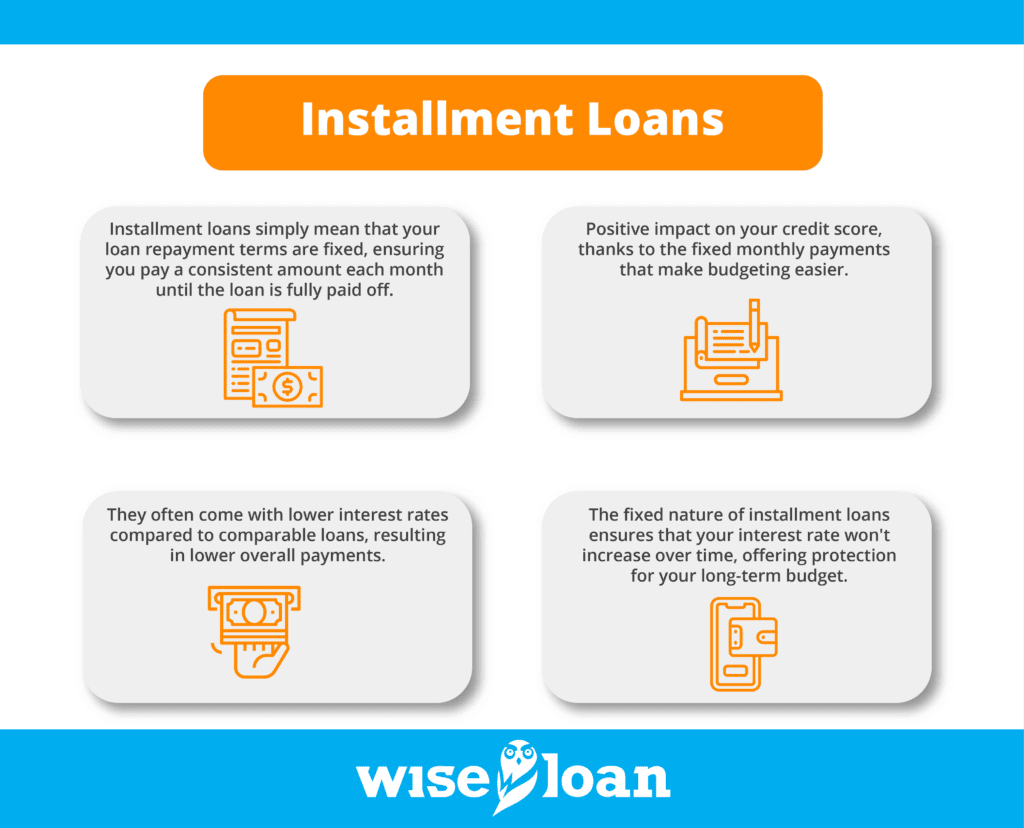Common Mistakes to Avoid When Applying for Cash Loans
The Ins and Outs of Loans: Navigating Your Financing Selections With Confidence
Maneuvering the complex landscape of loans needs a clear understanding of various types and crucial terms. Several individuals locate themselves overwhelmed by alternatives such as personal, automobile, and trainee loans, in addition to essential ideas like passion rates and APR. A grasp of these fundamentals not only help in examining monetary demands yet also enhances the loan application experience. However, there are significant variables and typical challenges that consumers must acknowledge before continuing additionally.
Recognizing Various Types of Loans
Loans work as crucial financial tools that accommodate numerous requirements and goals. Companies and individuals can pick from a number of types of loans, each made to satisfy certain needs. Personal loans, often unprotected, provide consumers with funds for numerous individual expenses, while vehicle loans enable the purchase of cars via protected funding.
Mortgage, or mortgages, aid buyers in obtaining home, normally including lengthy repayment terms and certain rate of interest. Student loans, targeted at funding education, usually included reduced rates of interest and credit options up until after college graduation.
For businesses, industrial loans offer required funding for development, equipment purchases, or operational expenses. In addition, payday advance loan offer fast money options for urgent requirements, albeit with higher rate of interest. Understanding the different kinds of loans permits borrowers to make informed choices that straighten with their financial goals and situations.
Secret Terms and Principles You Should Know
When steering loans, recognizing vital terms and concepts is necessary. Rates of interest play an essential duty in identifying the expense of loaning, while various loan kinds cater to different financial demands. Familiarity with these components can encourage people to make educated decisions.
Rate Of Interest Discussed
Exactly how do rates of interest impact loaning choices? Rates of interest stand for the price of obtaining cash and are a vital aspect in financial decision-making. A higher rates of interest increases the total expense of a loan, making borrowing much less enticing, while reduced prices can incentivize customers to take on debt. Lenders usage interest prices to reduce risk, mirroring consumers' credit reliability and prevailing economic problems - Installment Loans. Repaired rates of interest remain constant throughout the loan term, supplying predictability, whereas variable rates can vary, possibly leading to greater repayments in time. In addition, recognizing the annual percentage price (APR) is crucial, as it includes not simply passion yet likewise any kind of associated costs, offering a detailed view of loaning costs
Loan Enters Summary
Maneuvering the landscape of loan types is vital for borrowers seeking one of the most suitable funding options. Recognizing various loan types aids people make educated decisions. Personal loans are typically unprotected, optimal for settling debt or financing personal projects. Home mortgages, on the other hand, are protected loans particularly for acquiring property. Auto loans serve a comparable objective, funding car purchases with the automobile as security. Organization loans deal with entrepreneurs needing funding for procedures or growth. An additional choice, trainee loans, aid in covering instructional expenditures, usually with favorable repayment terms. Each loan type presents distinctive terms, rate of interest, and eligibility criteria, making it important for borrowers to examine their monetary requirements and abilities before committing.
The Loan Application Process Explained
What steps must one require to successfully navigate the loan application procedure? First, individuals ought to assess their economic demands and establish the kind of loan that straightens with those requirements. Next off, they must assess their credit scores record to verify precision and recognize locations for renovation, as this can influence loan terms.
Following this, consumers need to gather necessary documents, consisting of evidence of income, work background, and financial statements. As soon as prepared, they can approach lenders to make inquiries about loan items and rates of interest.
After selecting a lending institution, completing the application precisely is important, as noninclusions or mistakes can delay handling.
Finally, candidates need to await possible follow-up requests from the lender, such as added documents or information. By following these actions, individuals can boost their chances of a smooth and reliable loan application experience.
Elements That Impact Your Loan Authorization
When thinking about loan authorization, a number of important factors come right into play. Two of the most substantial are the credit history rating and the debt-to-income ratio, both of which supply lending institutions with insight into the customer's economic security. Understanding these components can significantly boost a candidate's chances of protecting the wanted financing.
Credit Score Value
A credit score functions as a crucial criteria in the loan approval procedure, influencing loan providers' understandings of a borrower's financial integrity. Normally ranging from 300 to 850, a higher score shows a history of accountable credit history use, including prompt repayments and reduced credit history use. Various elements add to this score, such as payment history, length of credit rating, kinds of credit history accounts, and current debt questions. Lenders make use of these ratings to assess risk, figuring out loan terms, rates of interest, and the likelihood of default. A strong credit history score not only enhances authorization chances but can also lead to extra desirable loan conditions. On the other hand, a low rating may result in greater rate of interest or denial of the loan application altogether.
Debt-to-Income Proportion
Lots of lenders take into consideration the debt-to-income (DTI) proportion an important aspect of the loan approval process. This economic metric contrasts an individual's month-to-month financial debt repayments to their gross monthly revenue, offering understanding right into their ability to handle additional financial obligation. A reduced DTI proportion indicates a much healthier financial scenario, making debtors extra appealing to loan providers. Variables influencing the DTI proportion consist of housing prices, bank card equilibriums, pupil loans, and other repeating expenditures. Additionally, adjustments in earnings, such as promos or more info job loss, can greatly affect DTI. Lenders commonly favor a DTI ratio below 43%, although this limit can differ. Understanding and taking care of one's DTI can enhance the opportunities of securing desirable loan terms and interest rates.
Tips for Handling Your Loan Properly

Usual Blunders to Prevent When Obtaining a Loan

Additionally, numerous individuals rush to approve the very first loan deal without contrasting alternatives. This can result in missed chances for much better terms or lower prices. Debtors must also prevent taking on loans for unnecessary expenditures, as this can lead to long-lasting financial debt troubles. Finally, neglecting to evaluate their credit history can hinder their capacity to safeguard favorable loan terms. By understanding these risks, borrowers can make informed choices and browse the loan procedure with higher self-confidence.
Regularly Asked Inquiries
Just How Can I Enhance My Credit Score Before Getting a Loan?
To enhance a credit score prior to requesting a loan, one must pay costs promptly, lower arrearages, check credit scores reports for mistakes, and stay clear of opening new charge account. Constant financial behaviors generate favorable outcomes.
What Should I Do if My Loan Application Is Rejected?

Exist Any Kind Of Fees Connected With Loan Prepayment?
Loan prepayment costs may apply, depending upon the lender and loan kind. Some loans consist of charges for early payment, while others do not. It is important for consumers to evaluate their loan arrangement for certain terms.
Can I Bargain Loan Terms With My Loan provider?
Yes, consumers can bargain loan terms with their lenders. Aspects like credit report, repayment background, and market conditions may affect the loan provider's desire to change rate of interest, settlement routines, or costs related to the loan.
How Do Rate Of Interest Impact My Loan Settlements Over Time?
Passion rates substantially influence loan payments. Greater prices result in enhanced month-to-month payments and overall interest costs, whereas reduced rates reduce these expenditures, inevitably impacting the borrower's total financial concern throughout the loan's period.
Several individuals locate themselves bewildered by choices such as personal, auto, and pupil loans, as well as vital ideas like rate of interest rates and APR. Interest rates play a vital role in identifying the price of borrowing, while various loan kinds provide to numerous financial demands. A greater rate of interest price enhances the general price of a loan, making borrowing less enticing, while lower prices can incentivize consumers to take on debt. Dealt with passion rates stay constant throughout the loan term, providing predictability, whereas variable prices can vary, potentially leading to greater repayments over time. Finance prepayment charges might use, depending on the lending institution and loan type.